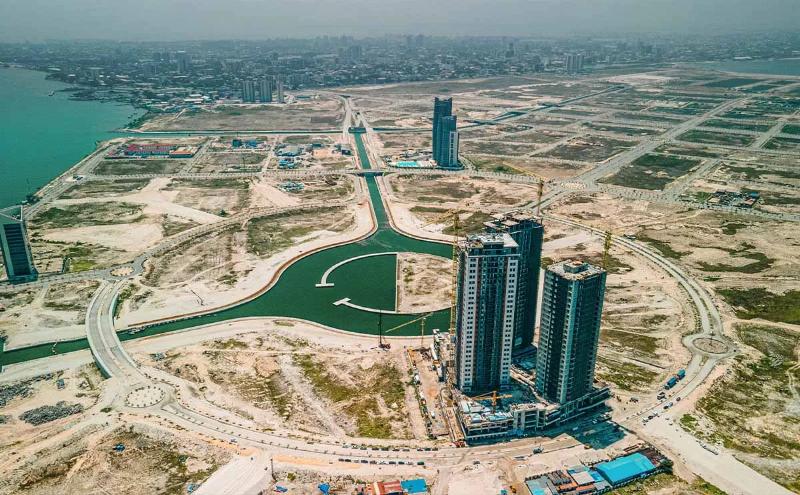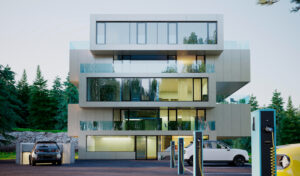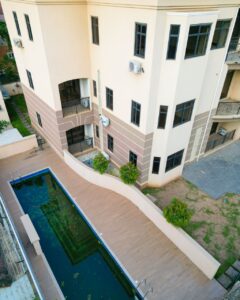Eko Atlantic City: Nigeria’s Ambitious Urban Development Project
Eko Atlantic City is one of the most ambitious real estate and infrastructural projects in Nigeria’s history. This visionary project aims to transform Lagos into a global business and tourism hub, addressing the city’s challenges of urban congestion, coastal erosion, and real estate scarcity. With its strategic location on the shores of the Atlantic Ocean, Eko Atlantic is set to redefine the skyline of Lagos and reshape Nigeria’s economic future.
Objectives of the Eko Atlantic Project
The primary goal of Eko Atlantic City is to create a sustainable, world-class city that can accommodate businesses, residents, and tourists. The key objectives include:
- Combating Coastal Erosion – The project was initially conceived as a response to the severe coastal erosion threatening Victoria Island and Lagos. The construction of the Great Wall of Lagos, an 8.5-kilometer sea barrier, protects the city from ocean surges and flooding.
- Providing Premium Real Estate – Eko Atlantic offers high-end residential, commercial, and recreational spaces, attracting investors and multinational corporations.
- Enhancing Infrastructure and Connectivity – The city is designed with advanced road networks, bridges, and public transportation systems to ease traffic congestion in Lagos.
- Boosting Nigeria’s Economy – By creating thousands of jobs, attracting foreign direct investment, and providing a new financial hub, the project aims to strengthen Nigeria’s economic standing.
Progress and Development
Since its inception, Eko Atlantic City has made significant progress. Some of the key milestones include:
- Land Reclamation: Over 10 million square meters of land have been reclaimed from the ocean, creating a solid foundation for the city.
- Infrastructure Development: Roads, drainage systems, and bridges are being constructed to provide seamless connectivity.
- Real Estate Investments: Several high-rise buildings, luxury apartments, and commercial complexes are either completed or under development, with international businesses securing spaces in the city.
- Sustainability Initiatives: The city is planned to be environmentally friendly, featuring green energy solutions and modern waste management systems.
Implications for Lagos and Beyond
The impact of Eko Atlantic City extends beyond its immediate location, influencing Lagos and Nigeria in several ways:
- Urban Expansion: As Lagos struggles with overpopulation, Eko Atlantic provides a new space for businesses and residents, easing congestion in the main city.
- Economic Growth: The project attracts global investors and multinational corporations, positioning Lagos as a competitive global business hub.
- Tourism and Hospitality Boom: With luxury hotels, waterfront attractions, and entertainment centers, Eko Atlantic is expected to boost Lagos’ tourism sector.
- Global Recognition: Eko Atlantic City showcases Nigeria’s capability to execute large-scale infrastructural projects, improving its international reputation and attracting further investments.
Challenges and Criticisms
Despite its promising outlook, Eko Atlantic City faces some challenges:
- Affordability Issues: The high cost of properties makes the city accessible only to the wealthy, raising concerns about inclusivity.
- Environmental Concerns: While the Great Wall of Lagos protects the city, some environmentalists worry about the impact on surrounding coastal communities.
- Infrastructure Completion: Some infrastructure projects are still in progress, and the city is yet to reach its full operational potential.
Conclusion
Eko Atlantic City is a bold statement of Nigeria’s commitment to urban development and economic progress. As the project nears completion, it holds the promise of transforming Lagos into a modern metropolis with world-class infrastructure, business opportunities, and sustainable living conditions. However, ensuring affordability, environmental responsibility, and infrastructural efficiency will be key to its long-term success. As the city continues to grow, it will serve as a model for future urban developments in Africa and beyond.



